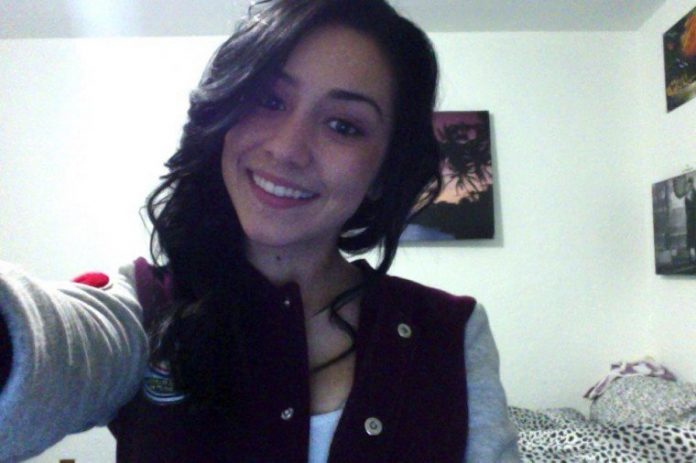Marlene LaMar called and texted her 15-year-old daughter Sierra more than a dozen times on her way home from work March 16, 2012, with no response. Sierra would soon miss a hair appointment, and Marlene started to panic, she testified Feb. 7, in day six of the trial for Sierra’s suspected murderer.
“I had this feeling that felt wrong,” Marlene said. “She would never miss a hair appointment. I knew something was really bad.”
Before that afternoon, the teen, whose cell phone was “attached” to her, almost always responded immediately to her mother’s texts, Marlene further noted.
Marlene’s testimony at the Hall of Justice in San Jose was a flurry of emotions, as she went from uncontrolled sobbing while describing her last days with her daughter, to fondly smiling as she recalled Sierra’s unique personality quirks.
“I went to her bedroom and said I loved her, and gave her a hug” the morning of March 16, 2012, the last time Marlene saw her daughter, she testified Feb. 7. The typical family school day routine saw Marlene and her boyfriend leave the house first each morning to go to work, leaving Sierra to walk to her school bus stop near their home. “She always would tell me she loved me” every morning, Marlene continued through tears.
Santa Clara County Deputy District Attorney David Boyd’s line of questioning allowed Marlene, Sierra’s sister Danielle and other witnesses to describe the 15-year-old former Sobrato High School sophomore as a normal teenager, while establishing a timeline of events. Boyd claimed that nothing was unusual about Sierra’s behavior in the days preceding her disappearance nearly five years ago, indicating it is unlikely she ran away from home.
The teen enjoyed keeping up with the latest cosmetic trends, and doing her friends’ makeup, Marlene said when shown photos of Sierra’s discarded beauty supplies, found with some of her other belongings after she disappeared.
“She loved her cat,” Marlene said of Sierra’s pet, Chester, who lived with the family at the north Morgan Hill home they rented. She almost always wore her favorite red Converse high-top sneakers—although the day she disappeared was an exception with black slip-ons covering her feet, which were later recovered by police.
Marlene laughed when Boyd presented several “mismatched socks” among Sierra’s belongings found by investigators.
Sierra’s body has not been found. But Antolin Garcia Torres, 25 of Morgan Hill, is on trial for her kidnapping and murder. He has been neatly dressed in a shirt and tie throughout the trial, with his close-cropped hair combed back. During Marlene LaMar’s Feb. 7 testimony, he sat silently with little expression on his face.
Earlier in the trial, Boyd outlined some of the DNA evidence—a key to the state’s case against Garcia Torres—that connects the defendant to Sierra in her final hours.
The defendant also faces three attempted kidnapping charges related to incidents in the parking lots of two Safeway stores in Morgan Hill in 2009.
If convicted, Garcia Torres faces the death penalty or life in prison.
Questions about ‘state of mind’
Before the jury entered the courtroom Feb. 7, attorneys and the judge discussed whether or not the defendant should be allowed to bring up father Steve LaMar’s criminal history.
During this discussion, Boyd read a letter written by Sierra, under unspecified context, describing some difficulties in her life at the time. The teen had in recent months been uprooted from her hometown of Fremont to move with her mother to Morgan Hill, where she had to make new friends. She was upset about the breakup of her biological parents, and lamented her newly limited contact with her father, who she described as “my best friend.”
“Everything in my life feels like it’s not right and going downhill,” reads part of the letter, which Boyd read aloud. The teen had also been seeing a therapist before she disappeared.
Defense attorney Al Lopez said that his intent was to show Sierra’s “demeanor and state of mind” at the time she wrote the letter.
“It’s important to the jury why she feels all alone,” Lopez told the judge. The defense attorney argued at the trial’s outset that Sierra might not be dead at all, and suggested through earlier testimony that she could have run away.
Boyd’s rationale is that Sierra is dead because she left behind her favorite belongings, including her cell phone and makeup, and she relied completely on her parents for financial support.
Judge Vanessa Zecher and the attorneys agreed to keep the father’s criminal past out of earshot of the jury.
The trial will resume Feb. 9, and is expected to continue another three to four months.








